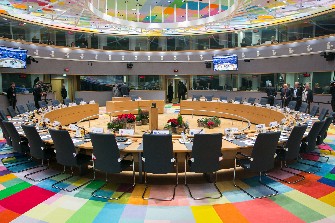The European Council has approved the Corporate Sustainability Reporting Directive (CSRD). The approval marks the end of the legislative process, and the directive will come into force on January 1, 2024 for large companies with more than 500 employees, in 2025 for companies with more than 250 employees or €40 mn ($42 mn) in sales or a balance sheet exceeding €20 mn, and for listed small and medium-sized enterprises as of 2026.
The CSRD represents an update of the Non-Financial Reporting Directive (NFRD), the EU’s current sustainability reporting framework.
The EU is pursuing the goal of creating a common reporting framework, something demanded by companies as well as investors and other stakeholders. Companies will be required to report in accordance with binding standards recently approved by the European Financial Reporting Advisory Group. The aim is to have relevant, high-quality information that is comparable across companies and is easy to use and process.

This new directive represents a veritable tsunami of detail due to the increase in the level of information, the number of companies affected and the cost it will entail. The risk is that it will become yet another huge bureaucratic exercise, where the only big winners are the consulting firms.
The rule will be implemented regardless of whether or not the entities are listed on stock markets, which extends the scope to companies controlled by investment funds and small family businesses.
The directive itself estimates that the number of companies affected will be approximately 49,000, compared with 12,000 currently bound by the NFRD. The EU estimates the annual recurring cost to be around €3.6 bn. This is in addition to costs companies must already bear to provide taxonomy information – classifying which activities of the company can be considered ‘green’, according to the EU regulation.
The standard abandons the existing concept of non-financial reporting, given the economic implications of many of the risks analyzed, especially climate risks, to speak exclusively of ‘sustainability reporting’.
The directive expands the current information requirements, with greater requirements on strategy, objectives, the main adverse impacts on the company and its value chain, social factors or human rights, or on its intangible assets. Companies must communicate qualitative and quantitative information, prospective and retrospective information and information covering short, medium and long-term time horizons.
Entities must provide the information necessary to understand how sustainability factors affect them and to understand the company’s own impacts on society and the environment: the so-called double materiality principle.
‘Greater pressure’
Sustainability information becomes part of the management report and must therefore be published in the same document, at the same time as the financial information and in digital format. The reports many companies used to issue separately and after the publication of the consolidated annual accounts will therefore cease to be valid. This will place greater pressure on their internal processes to comply with reporting deadlines.
Its inclusion in the management report is a very important qualitative change because, for the first time, the board of directors must sign off and assume responsibility for sustainability information. The role of the board of directors and managers in all matters relating to sustainability must also be reported.

The level of stringency is increased by making a ‘limited audit or review’ of sustainability information mandatory. The ‘limited audit’ is usually stated in a negative form, expressing that no risks that could pose material challenges to the company have been identified by the auditor. A full audit, with the objective of equating the quality of sustainability information with financial information, would again increase the costs for companies and would require a standardization of the processes for obtaining sustainability information, which is very unlikely to be possible at this time.
The new legislation represents an important effort to harmonize all the information, but it is only valid for Europe, which is a weakness. It generates a new increase in costs, both economic and in terms of personnel and resources necessary for compliance, after those already incurred in recent years. Business results are suffering in the current environment and listed companies are being punished in the stock market for their higher costs and lower results.
Companies, along with regulatory obligations, receive continuous requests from independent entities such as the CDP that measure carbon emissions. They also have to fill out dense questionnaires sent by major sustainability stock market indices such as the FTSE4Good or the Dow Jones Sustainability Index. Reporting obligations risk becoming a dangerous, never-ending Tower of Babel.
Meanwhile, emissions continue to grow globally. The path to a more sustainable economy requires real investment and the allocation of both public and private capital. That is the great unfinished business.
Ricardo Jiménez is the former IR director of Ferrovial










